Tag: Hospice Care
Articles about hospice care including how to manage comfort at end of life.
Articles about hospice care including how to manage comfort at end of life.
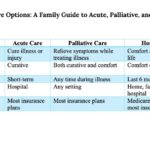
Discover when and how acute, palliative, and hospice care can help patients and families navigate serious illness. This comprehensive guide explains the differences between care types, eligibility requirements, and how to choose the correct option.
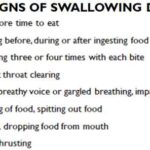
Learn about swallowing problems in dementia patients, including symptoms, risks, and management strategies for caregivers and healthcare professionals.
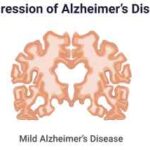
Delve into the complexities of Alzheimer's disease, the most common form of dementia. This article examines its causes, symptoms, diagnosis, and treatment options while discussing the challenges patients and caregivers face. Learn about ongoing research and potential breakthroughs in the fight against this devastating neurological disorder.

Delve into the world of dementia with our comprehensive guide. Understand its progression, learn about risk factors and prevention, explore diagnosis and treatment options, and discover coping strategies for cognitive decline. Empower yourself with the knowledge to navigate the challenges of dementia.
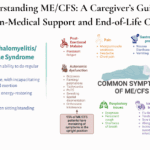
This comprehensive guide helps caregivers, families, and end-of-life professionals understand ME/CFS, providing practical tools for non-medical support. Learn about the disease trajectory from onset to end-of-life care, including when palliative and hospice care should be considered for optimal patient comfort and well-being.
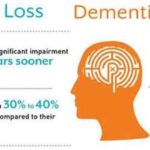
Recent studies have revealed a surprising link between hearing loss and dementia. This article examines the scientific basis of this connection, investigating how hearing impairment may contribute to cognitive decline. Discover practical steps for maintaining hearing health and potentially lowering the risk of dementia, along with cutting-edge research in this critical area of study.
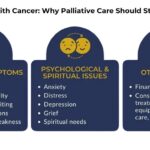
Discover why combining palliative care with cancer treatment from day one can transform your cancer journey. This guide explains how early palliative care provides expert symptom management, emotional support, and better outcomes while maintaining hope and enhancing quality of life.
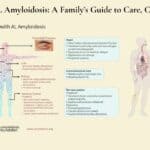
AL amyloidosis is an uncommon yet severe condition that impacts various organs. This detailed guide provides essential information for patients and their families regarding symptoms, disease progression, treatment options, and the timing of considering hospice care for their loved one.
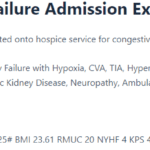
Learn about the essential elements of a comprehensive hospice admission note. This guide helps registered nurses document crucial patient information, from diagnoses to physical assessments, ensuring the delivery of quality end-of-life care and proper eligibility documentation.

Discover how hospitals are crucial in helping families place dementia patients in appropriate care settings. This article explores various care options, discusses challenges in placement decisions, and provides evidence-based strategies for effective hospital-based care coordination to ensure the best possible outcomes for patients and their loved ones.

The FY2026 Hospice Proposed Rule (CMS-1835-P) introduces critical payment rate adjustments and wage index modifications that will reshape hospice operations. This comprehensive analysis examines the financial implications for providers and the direct impact on clinical managers and frontline staff delivering end-of-life care.

Examine the profound impact of hospice care on patients, families, and the healthcare system. This article investigates the physical, emotional, and financial benefits of hospice care, emphasizing its crucial role in end-of-life care and overall healthcare efficiency.

Discover the theory of retrogenesis and its profound impact on dementia care. This comprehensive guide helps nurses, caregivers, and families understand how dementia reverses developmental stages, offering practical insights for tailored care strategies. Learn to navigate the challenges of dementia with empathy and effectiveness.
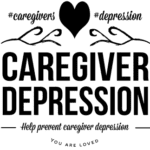
Hospice care not only supports terminally ill patients but also plays a crucial role in reducing depression among caregivers and bereaved families. Discover how compassionate care and targeted interventions make a difference.

Explore the essential regulatory timeline requirements for hospice providers, covering everything from initial certifications to recertifications, nurse visits, and face-to-face encounters. This comprehensive guide helps ensure compliance and proper billing practices for hospice services.
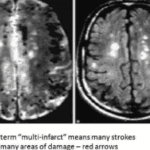
Multi-infarct dementia is a challenging condition that affects not only patients but also their families and caregivers. This comprehensive guide explores the disease's progression, common symptoms, and effective care strategies. Learn what to expect and how to provide the best support for your loved one from diagnosis through end-of-life care.

Posterior cortical atrophy (PCA), also known as Benson's syndrome, is a rare form of dementia affecting visual processing. This article explores PCA's symptoms, progression, and impact on daily life. Learn how to provide effective care, recognize when to seek help, and navigate the challenges of this complex condition.

Dementia is a challenging journey for both patients and caregivers. This comprehensive guide explores the stages of dementia progression and offers practical advice on care strategies, treatment options, and support resources. Learn how to navigate the changes and provide compassionate care throughout the journey.

This article delves into Utilization Behavior in dementia, offering practical advice for families and caregivers to create a safe environment and mitigate the challenges associated with this condition.
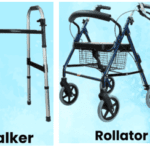
Discover practical and compassionate strategies for encouraging a loved one with dementia to use a cane, walker, or wheelchair. Enhance their safety and quality of life with these tips.
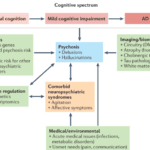
This guide provides hospice nurses, caregivers, and family members with essential information on dementia-induced psychosis, including its signs, symptoms, differentiation from other conditions, and effective management strategies.

This article provides practical tips and strategies for caregivers and family members to prevent dementia patients from removing their oxygen nasal cannula. Ensuring continuous oxygen use is essential for their health and well-being.
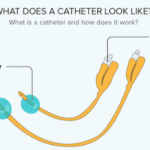
Discover how to provide expert care for a loved one with a Foley catheter. This comprehensive guide, written by a hospice nurse, covers essential steps, common problems, and medication tips. Learn to change tubing, prevent clogging, and ensure comfort during end-of-life care. Empower yourself with the knowledge to support your loved one effectively.

Learn about the diagnosis codes not allowed as primary diagnoses on hospice claims. This guide helps hospice agencies ensure accurate billing and optimal patient care.